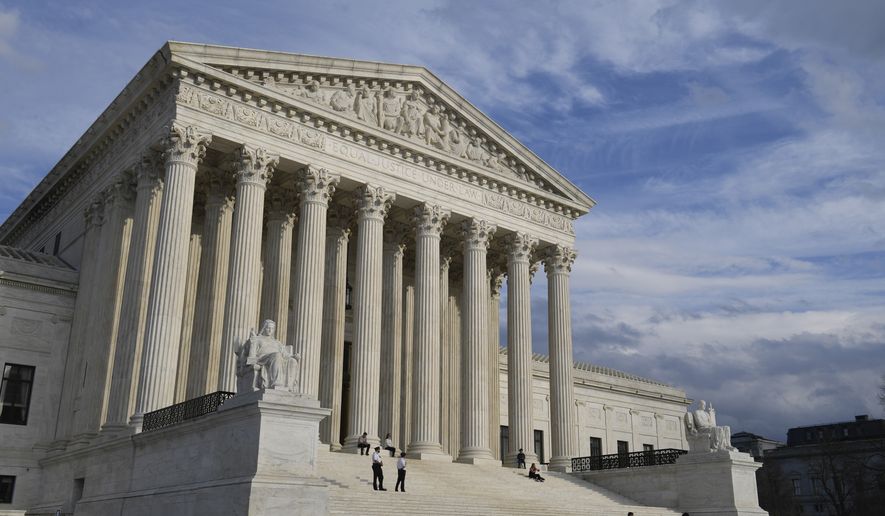The Supreme Court put a hold Friday on lower court rulings that had ordered the White House to stop pressuring social media companies to censor content the administration disagreed with.
The justices said they would speed the case to their docket, but said in the meantime that the lower court’s order against the White House, FBI and other federal agencies will be stayed.
Lower courts had ruled that the White House and other high-level administration officials used a “coordinated campaign” of pressure to get social media companies to limit the visibility of posts that the administration disagreed with, particularly concerning the coronavirus and the 2020 election.
A district judge issued a wide-ranging order telling the government to stop it.
An appeals court narrowed the ruling, saying that the administration had First Amendment rights to speak its mind but could not actively coerce social media companies through threats or other untoward pressure.
It took at least four of the nine justices to agree to take the case.
The court didn’t say who was on which side of that question, but Justices Clarence Thomas, Samuel A. Alito Jr. and Neil M. Gorsuch said in an opinion Friday they would have let the lower court order stand as the case makes its way onto their docket.
“Government censorship of private speech is antithetical to our democratic form of government, and therefore today’s decision is highly disturbing,” Justice Alito wrote.
The case was brought by Missouri, Louisiana and several private actors.
They said social media companies blocked or limited the visibility of their posts at the behest of federal government officials. Among the messages targeted were questions about the origins of the coronavirus, challenges to pandemic lockdown policies, the authenticity of Hunter Biden’s laptop and claims of election fraud.
“We are pleased to learn that the U.S. Supreme Court will hear this case, giving us yet another opportunity to defend the people from this assault on our First Amendment rights,” said Louisiana Solicitor General Liz Murrill.
Sen. Eric Schmitt, who as former attorney general of Missouri initiated the lawsuit, called it “one of the most important free speech cases in a generation.”
Whatever the final outcome, the case has already been monumental.
As the case proceeded, the government was forced to turn over a massive amount of evidence of the pressure campaign officials led, including threats to impose new regulations on social media companies if they didn’t bow to the government’s wishes.
U.S. District Judge Terry A. Doughty found the government had a remarkable success rate in getting the social media companies to cooperate. He called it a “widespread censorship campaign” and he ordered a halt to all sorts of communications between officials and the companies.
The 5th U.S. Circuit Court of Appeals agreed with Judge Doughty’s findings but said his general prohibition on officials contacting social media companies went too far.
They narrowed his injunction to apply only to the White House, CDC, FBI and Homeland Security’s cybersecurity agency, and limited the prohibited conduct to attempts to coerce the companies.
The Justice Department asked the Supreme Court to step in and halt the lower court rulings, pointing to all sorts of situations where the government might be limited in its ability to conduct business.
Justice Alito said the Biden administration only cited hypotheticals and the government failed to show any real harm would come from leaving the 5th Circuit’s ruling in place.
“The injunction applies only when the Government crosses the line and begins to coerce or control others’ exercise of their free-speech rights. Does the Government think that the First Amendment allows Executive Branch officials to engage in such conduct?” Justice Alito wrote.
The case is Vivek H. Murthy v. Missouri.
• Stephen Dinan can be reached at sdinan@washingtontimes.com.




Please read our comment policy before commenting.